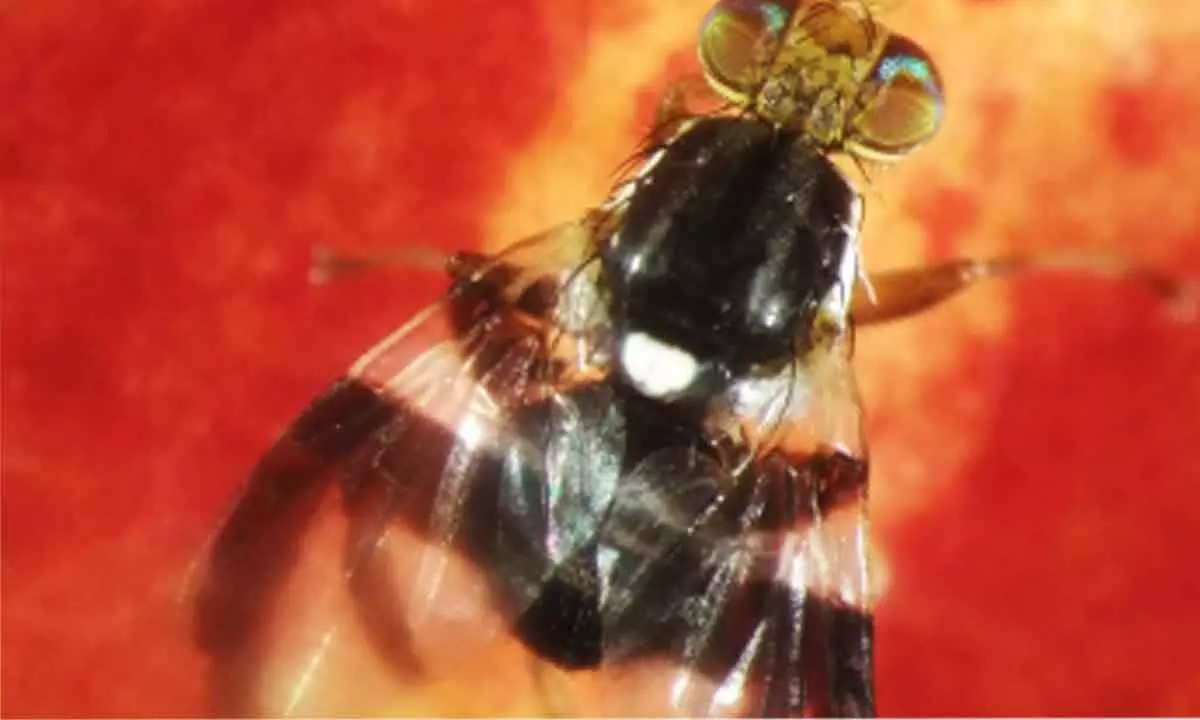New hypothesis for evolution of different species: Study

Factors such as new environments, climates, competition, and habitats are known to lead to the formation of different species.
Bengaluru: Factors such as new environments, climates, competition, and habitats are known to lead to the formation of different species. However, the changes that individuals undergo during evolution are still an area of study. A recent scientific paper published in the journal Royal Society Open Science puts forth a new hypothesis that the rate of development of the brain as well as chemical changes in the nervous system can lead to the evolution of a new species.
The study was carried out by researchers from the National Centre for Biological Sciences (NCBS), the University of Trans-Disciplinary Health Sciences and Technology in Bengaluru, the University of Notre Dame, and the University of Florida, USA. Rhagoletis pomonella, commonly known as the apple maggot fly, provided the researchers with a unique opportunity to study a system currently forming a new species, rather than sometime in the distant past. This fly infested the native hawthorn fruits in the USA until apples were introduced by new colonisers in the Eastern part of the United States in the mid-19th century.
With the introduction of apples, the fly then adapted to infest the apples too, eventually forming two separate races keeping to the two separate fruits. Two factors made this adaptation possible. First, flies that infest both apple and hawthorn synchronise their emergence from their overwintering hibernation - called diapause - with the fruiting time of the two respective fruits. Second, each race exhibits a distinct preference for the odor of its own fruit and avoids the odor of the other fruit. They track the odor to find their fruits, mate, and a suitable place to lay eggs. These two factors essentially keep the populations separate from each other, allowing them to become separate species.
The researchers wanted to find out if changes in the brain of these flies during development could link these two factors together and encourage speciation to occur.
For this, the researchers collected apple and hawthorn fruits infested with flies and reared them until adult flies emerged and then carried out their experiments in Bengaluru. They also collected apple and hawthorn fly pupae and reared the flies to adulthood, tracking the development of the brain using confocal imaging and mass spectrometry to measure the levels of 14 neuromodulators like dopamine, serotonin, and octopamine.
"Surprisingly, even when we controlled their hibernation period, the apple fly developed the adult brain much faster compared to the hawthorn fly. In addition, the apple fly brains, which developed faster, also showed reduced levels of certain neurochemicals," shares Hinal Kharva, the lead researcher who carried out the study. The researchers found that concentrations of 11 out of the 14 neurochemicals they tested for were significantly reduced in the pupae of the apple flies across multiple developmental stages as compared to the hawthorn flies. This reduction was present even in adulthood when they search for the fruit to mate and lay eggs.
"Our results suggest that changes in neurochemicals during specific stages of brain development could influence host choice in adult flies, providing a novel hypothesis for the evolution of new species."
This new study, therefore, provides specific timepoints and neurotransmitters that could be assessed in future studies to determine whether and how they impact the evolution of these flies.
"Linking changes in brain development and neurotransmitters to an insect's life cycle has interesting implications not only for generating new species, but for how changes in the environment, like climate change, could impact the choices that insects make - like what plants to infest," shared Shannon Olsson, faculty at NCBS who guided this research. This could be interesting as human-induced climate change, in addition to changing the distributions and survival of animals, could potentially lead to changes in how animals develop and behave in ways that we cannot yet predict. Future studies will be important to test this new hypothesis.










